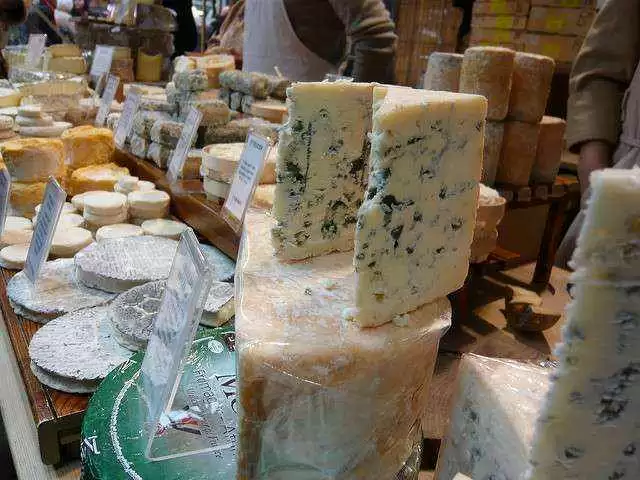
Celiac.com 10/18/2016 - Vitamin K was discovered in 1929 and named for the German word koagulation with Herrick Dam and Edward A. Doisy receiving the Nobel Prize for their research in 1943. But Vitamin K is a multi-functional nutrient.
Vitamin K1 or phyloquinone is found in green leafy vegetables like spinach and used by the liver for blood coagulation within 10 hours.
Celiac.com Sponsor (A12):
Vitamin K2 or menaquinone (referred to as MK-4 through MK-10) comes from natto (fermented soybeans), organ meats, egg yolks, and raw milk cheeses. It circulates throughout the body over a 24 hour period and is synthesized in the human gut by microbiota according to the Annual Review of Nutrition 2009. Aging and antibiotic use weakens the body's ability to produce K2 so supplementation needs to be considered.
The Rotterdam Study in the Journal of Nutrition 2004 brought into focus the role of K2 as an inhibitor of calcification in the arteries and the major contributor to bone rebuilding osteocalcin- NOT calcium supplementation that many health professionals had recommend. The study reports K2 resulted in 50 percent reduction in arterial calcification, 50 percent reduction in cardiovascular deaths, and 25 percent reduction in all cause mortality. K1 had no effect on cardiovascular health.
Dennis Goodman, M.D. in Vitamin K2- The Missing Nutrient for Heart and Bone Disease describes why most western diets are deficient in K2. Dietary awareness of Vitamin K has focused on anti-clotting since warfarin was approved as a medicine (in 1948 it was launched by the Germans as rat poisoning) and President Eisenhower was administered warfarin following his heart attack. Little attention was paid to any other nutritional importance this essential fat-soluble vitamin could provide.
Menaquinones (K2 or MK) are rapidly depleted without dietary intake of natto or animal sources needed for repletion which results in bone health issues, especially in menopause. Without it, the body does not use calcium and Vitamin D3 to activate osteoblasts to rebuild bone. Menaquinones cause cells to produce a protein called osteocalcin which incorporates the calcium into the bone. Without it, calcium moves into the artery wall and soft tissues of the body leading to hardening of the arteries and osteoporosis.
The benefit of K2 is not new research. In 1997 Shearer presented the roles of vitamins D and K in bone health and osteoporosis prevention in the Proceedings of Nutrition Society. The Osteoporosis International meeting in New Zealand 2013 re-emphasized this nutrient's importance proclaiming the best treatment for osteoporosis is achieving a strong peak bone mass before 30 years old and increasing Vitamin K2 food sources in the diet throughout life.
The richest food source of K2 is the Japanese fermented soybean natto, which is produced with Bacillus natto, a bacterium that converts K1 to MK-7. Fermented cheeses like Swiss and Jarlsberg contain Mk-8 and Mk-9 which can be converted to K2 at a 20 to 40 percent lower rate than from natto, but more appealing to the western taste buds. Grass-fed beef and egg yolks are the most common source of K2 in the American diet.
For those who have not acquired a taste for fermented soybeans or natto, my nutrition mentor, Adelle Davis, had it right when she recommended eating liver once a week. Celiacs need to be sure that their diets include ample red meats, eggs and fermented cheeses or yogurt or else dietary supplementation with Vitamin K2 (MK-4) is recommended. Without it, bones can become soft tissues and arteries "turn to stone" or calcified.
A Chart of Vitamin K levels in Foods can provide insight into food choices for menaquinone compared to Vitamin K1. It was adapted from Schurgers et al. Nutritional intake of vitamins K1 (phylloquinone) and K2 (menaquinone) in the Netherlands. J Nutr. Environ. Med. 1999.
| Food | K1 | MK-4 | MK-7,8,9 |
| Meats | 0.5-5 | 1-30 | 0.1-2 |
| Fish | 0.1-1 | 0.1-2 | |
| Green Vegetables | 100-750 | ||
| Natto | 20-40 | 900-1200 | |
| Cheese | 0.5-10 | 0.5-10 | 40-80 |
| Eggs (yolk) | 0.5-2.5 | 10-25 |
The American Heart Association and many medical professionals who advocated no organ meats or red meat and egg yolks, deprived Americans of primary sources of Vitamin K2 which is essential for bone and cardiovascular health.







Recommended Comments